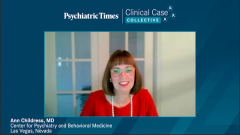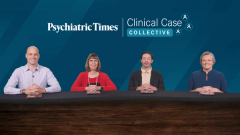
Safety, Monitoring and Transition of Care in Patients with ADHD
Panelists discuss how stimulant and nonstimulant attention-deficity/hyperactivity disorder (ADHD) medications have different adverse effect profiles, with stimulants causing concerns such as misuse potential, cardiovascular effects, tics, and growth suppression.
Episodes in this series

Health care professionals discuss the critical differences between stimulant and nonstimulant ADHD medication adverse effects. Stimulant medications can cause misuse concerns, elevated blood pressure and heart rate, tics in younger patients, growth suppression, and rarely, suicidality or psychosis. Nonstimulant ADHD medications may lead to somnolence, fatigue, severe liver injury, suicidal ideation, and irritability, though they typically have lower effectiveness. Both medication classes share common adverse effects, including decreased appetite, headaches, nausea, and insomnia.
Monitoring and support managing ADHD medication for college-bound students requires careful consideration of timing, adverse effects, and monitoring strategies. Telehealth has revolutionized ADHD care by enabling continuous provider relationships when students relocate for education. Health care providers emphasize the importance of maintaining established therapeutic relationships rather than transferring care to campus health services, which often avoid prescribing stimulant medications due to diversion concerns. This continuity of care ensures better treatment outcomes and reduces stigma.
Successful ADHD management in college requires proactive accommodation planning and comprehensive support systems. Students should register for academic accommodations immediately upon enrollment, before experiencing academic difficulties, to avoid stigma and ensure access to extended testing time and other necessary supports. Health care providers recommend connecting students with college therapy departments and developing detailed transition plans that include proper documentation of diagnosis history and previous treatment responses. This comprehensive approach significantly improves graduation rates and academic success for students with ADHD.
Newsletter
Receive trusted psychiatric news, expert analysis, and clinical insights — subscribe today to support your practice and your patients.









